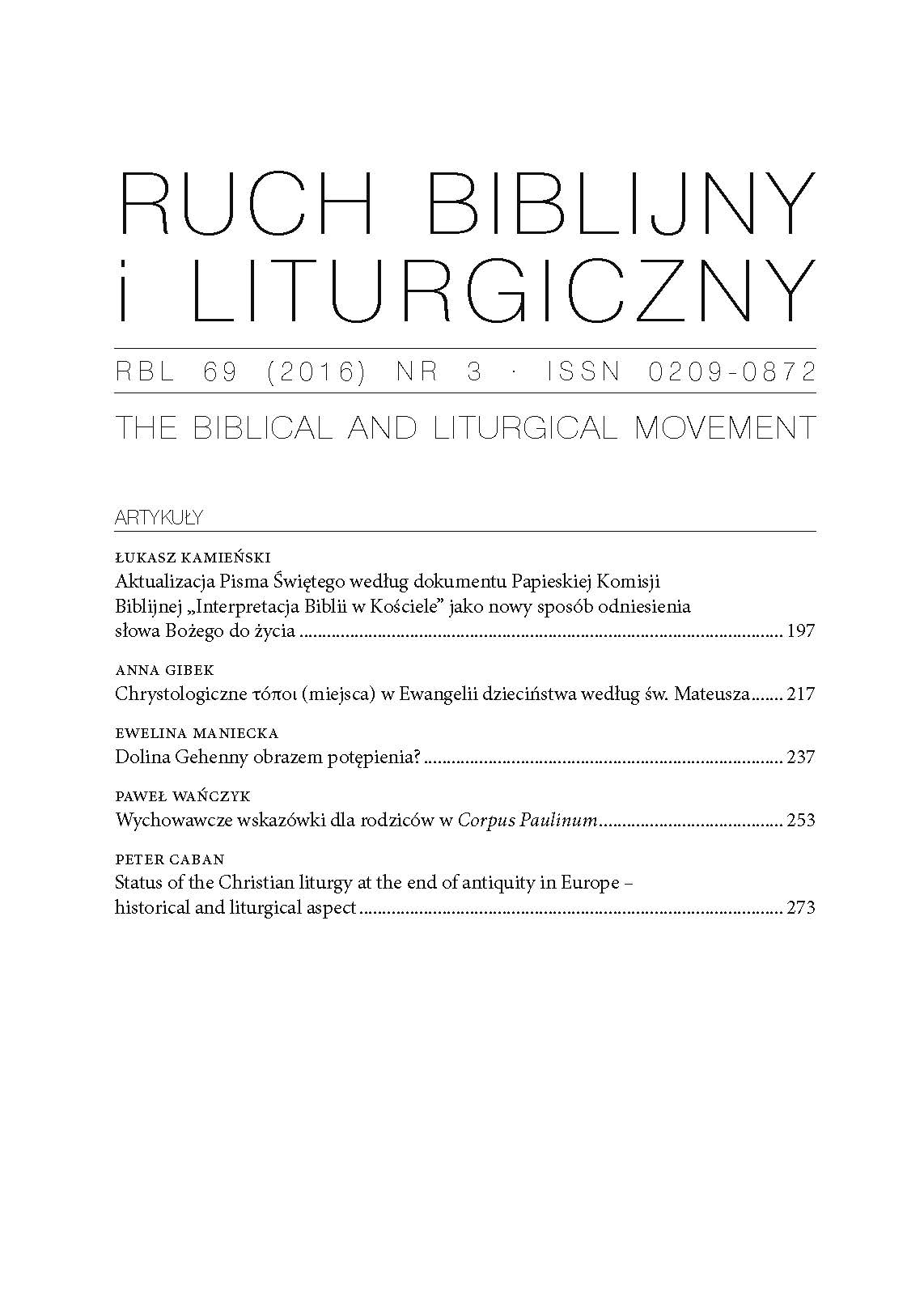Samodyscyplina jako warunek nowego życia w Chrystusie. Idea ἐγκράτεια Pawła z Tarsu
Self-Discipline as a Condition for Life in Christ: Paul of Tarsus’ Notion of ἐγκράτεια
Author(s): Anna Rambiert-KwaśniewskaSubject(s): Christian Theology and Religion, Jewish studies, Philosophy of Religion
Published by: Polskie Towarzystwo Teologiczne
Keywords: self-disciplie; ἐγκράτεια; St. Paul; sport; dietary prohibitions; marriage;
Summary/Abstract: St. Paul was a man of his time. He was familiar with philosophical thought, especially Stoicism, as he had grown up in a multicultural city in which Eastern ideas were impacted by Greek philosophy. Judaism coexisted alongside pagan religions, while synagogues functioned near gymnasiums. Thus the young Paul appreciated the ideas of the Greek world as well as the concepts related to them. One of these was the minor virtue that can be found in philosophical texts and that is known as ἐγκράτεια. This Greek term is usually translated as “self-discipline” or “restraint.” We can directly find it at three points in the Pauline Epistles (1 Corinthians 7 : 9, 9 : 25; Galatians 5 : 23), although it is also possible to find indirect implementations of this idea. It turns out that Paul mentions ἐγκράτεια in the same contexts as the philosophers who were his contemporaries, especially Gaius Musonius Rufus and Epictetus. An analysis of ancient texts shows that the notion of self-control is present in Paul’s epistolography, namely when he discusses food, sexuality, and the virtue of in genere, which according to the Apostle to the Nations should be a trait of the apostolate.
Journal: Ruch Biblijny i Liturgiczny
- Issue Year: 71/2018
- Issue No: 1
- Page Range: 53-72
- Page Count: 20
- Language: Polish

